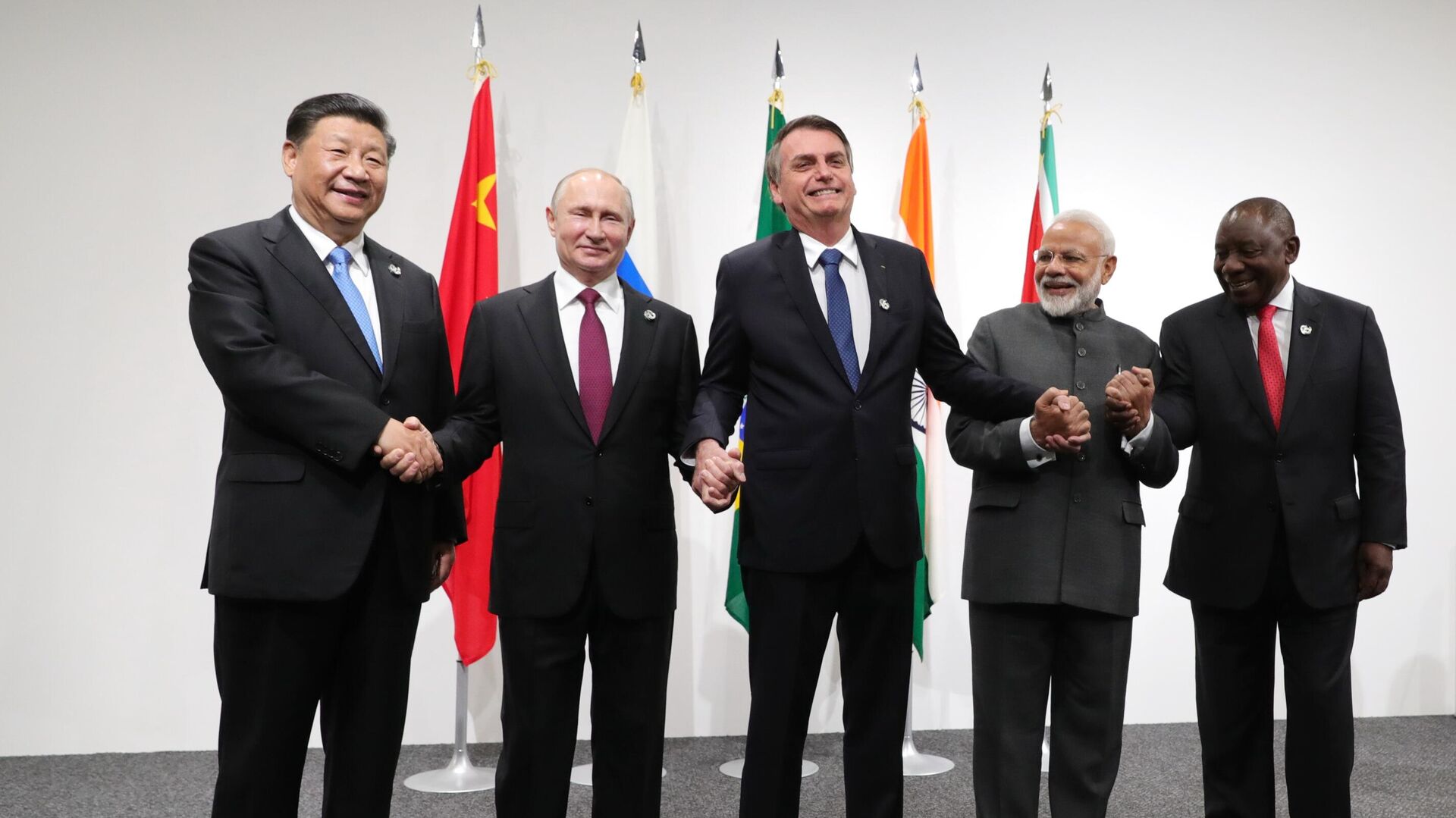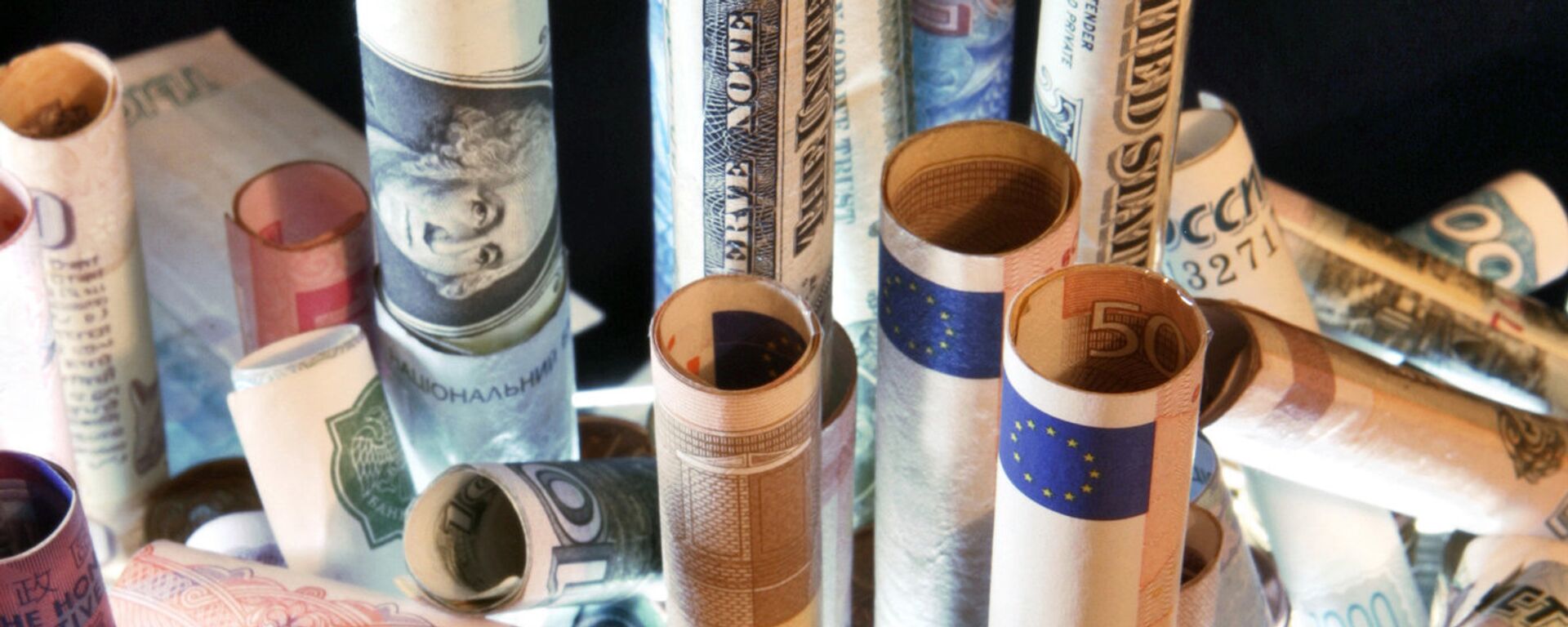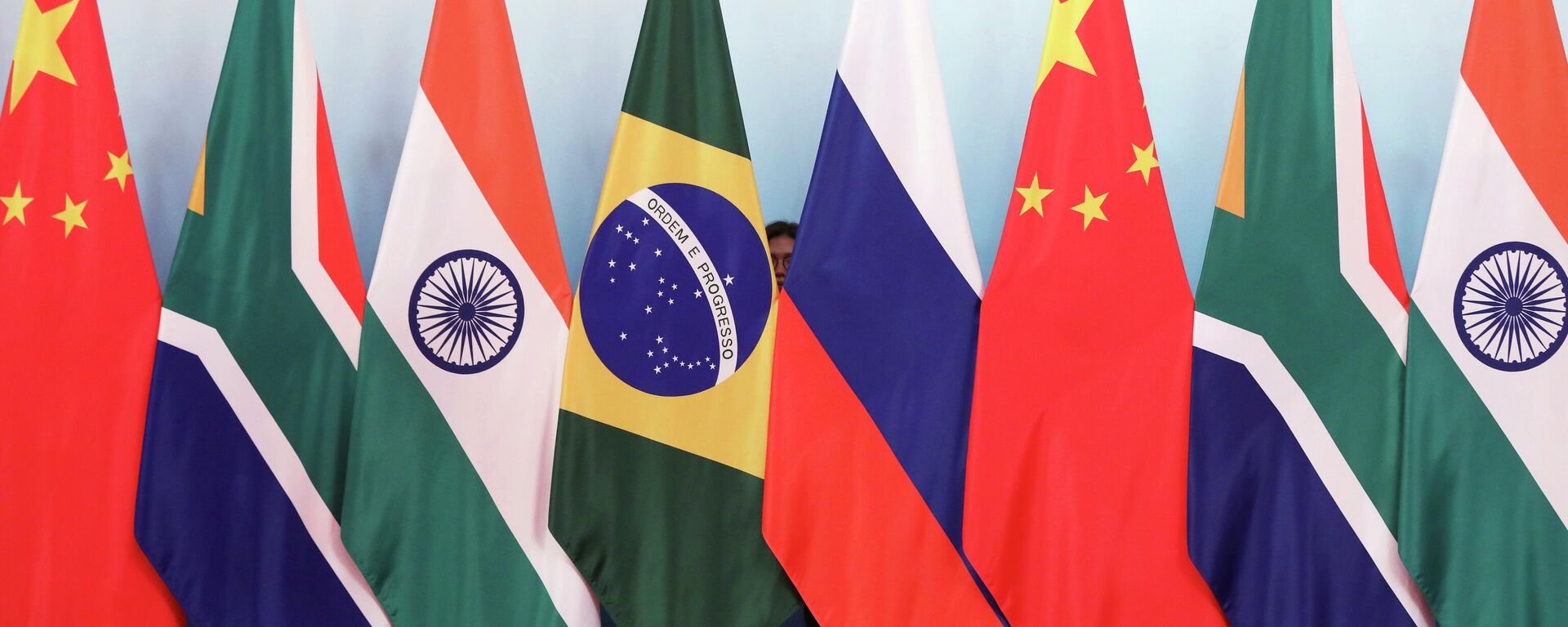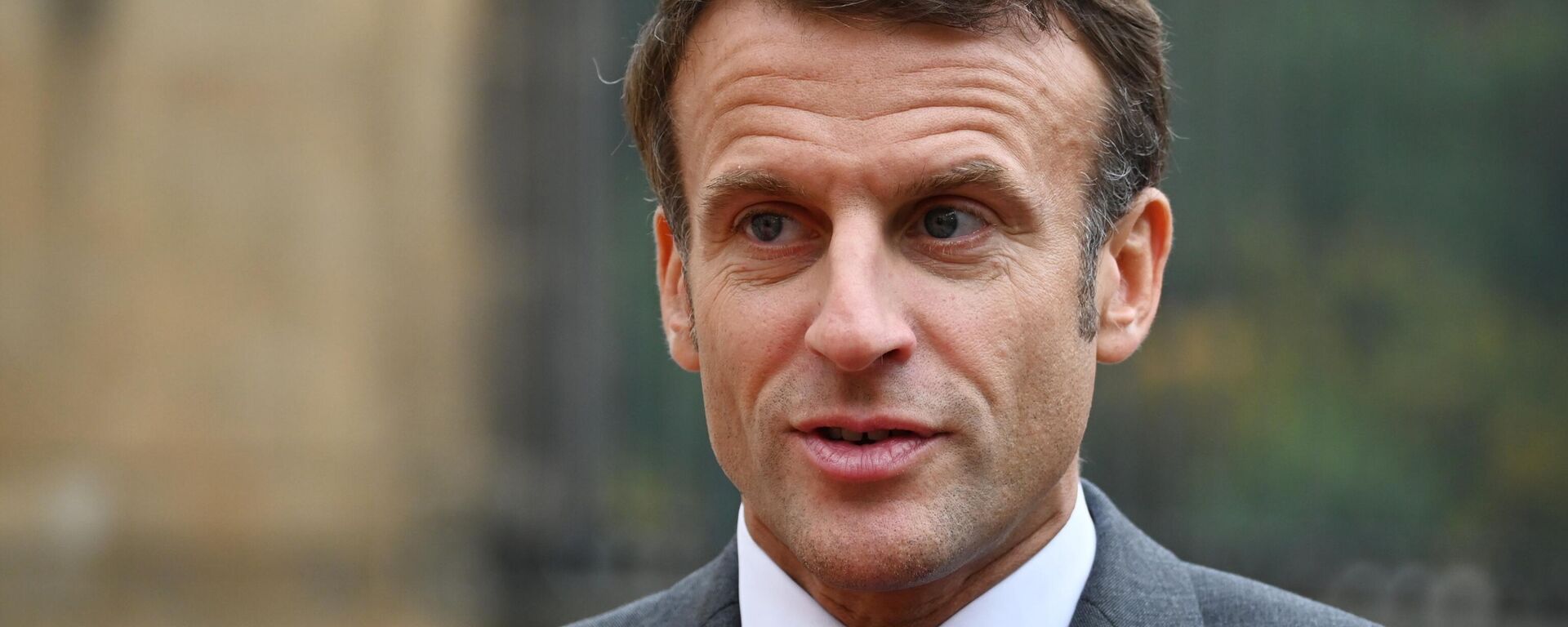Growth of BRICS Could Accelerate De-Dollarization

© Sputnik / Mikhail Klimentyev
/ Subscribe
The BRICS group of the leading non-Western nations is expanding rapidly, both in terms of economic might and new member states. Sputnik's commentators discussed whether it could also usurp the US dollar as the global reserve currency.
The BRICS group of emerging economies could eclipse Washington-led blocs and end the domination of the dollar, two experts say.
The group of five top emerging economies on four continents — Brazil, Russia, India, China and South Africa — is set to grow rapidly in the near future.
That is despite — or possibly because of — Western sanctions on Moscow over its military de-Nazification operation in Ukraine, which have effectively forced Russia to trade with other states in their currencies.
That in turn threatens to end the US dollar's hegemony as the international trade and reserve currency, cutting demand for and the value of the mighty greenback just as the US is gripped by an inflationary crisis with a possible recession looming.
Mohammed Saqib, secretary-general of the India-China Economic and Cultural Council, and Anuradha Chenoy, retired professor and dean of he School of International Studies at Jawaharlal Nehru University in New Delhi discussed the latest developments with Sputnik.
Expanding Alliance
In the past few years 13 states have applied to join BRICS, including Iran and Argentina in 2022, and 20 more have expressed interest, among them Africa's largest country Algeria.
The appeal of BRICS to those developing countries "stems partly from Geo-economics, geopolitics dynamics it represents, and frustration with the existing international world order dominated by few countries and the quest for multilateralism," said Saqib, as well as "economic potential, regional influence, technological advancements, and market access."
Chenoy pointed out that BRICS respects the sovereignty of its member states and does not interfere in bilateral disputes between them. The grouping limits its scope to mutually-beneficial trade, development and financial cooperation and avoids security and military matters.
"The emerging economies countries believe, and facts show that the international economic multilateral institutions like the World Bank and IMF, have a weight that continuously privileges the West," she said. "BRICS countries were tired of asking that multilateral institutions be reformed to be more inclusive and balanced in terms of world reality. But there pleas went on deaf ears. So the BRICS formed the New Development Bank [NDB]."
Some commentators have noted that BRICS is now more credible than the Washington-led organisations, such as the G7 — whose combined wealth is now less than that of the five emerging economies — the United Nations (UN) and IMF and World Bank.
"The voice of the rest of world is not equally heard," Chenoy said. "These institutions infantilise the others — especially in the Global South — and give them advice based on the interest of the West, and not necessarily based on what would be the best interest of the developing countries."
Saqib disagreed however, arguing that an organisation’s credibility "depends on its ability to deliver on its objectives, gain the trust and support of member countries, and effectively address the needs and challenges of the international community," and that "BRICS is yet to achieve that."
African Horizons
Egypt is one the latest countries to apply for BRICS membership on March 30 this year.
"Apart from Egypt being a sizable economy, it has an important strategic geographical location" Saquib said. "It will be a bridge between Africa, the Middle East, and Europe" and give the BRICS countries increased access to Middle East and North African (MENA) markets.
He stressed that Egypt is "crucial in maintaining regional stability and security" in the region, and its participation in BRICS "could contribute to collective efforts by the member countries to address regional challenges, promote conflict resolution, and enhance cooperation on security issues, such as counterterrorism and maritime security."
Chenoy noted that Egypt was one of the "major, stable and important economies of Africa and West Asia" and has "a potential role as a leader" in the region.
"Egypt is keen to join the NDB since the NDB gives loans for infrastructure projects, that Egypt needs," she said. The development bank does not apply political pressure to borrowers through "conditionalities," like the World Bank and others, which "makes it an attractive and viable option."
De-Dollarization
Saqib said a world economy without the dominance of the US dollar was "hard to imagine right now," but "we are on the way."
"What will happen is difficult to predict. But other currencies could gain prominence and fill the void in the absence of the US dollar as the global reserve currency," he added.
"The world is still far from de-dollarisation, even though the first important steps of bilateral trade with local currencies has already begun," Chenoy said.
But she noted that "the hit taken by the petrodollar is most important in this regard because since 1975 oil from West Asia was sold only in dollars. Now Russia and some other oil producers are selling oil in yuan and local currencies."
"No other currency has the same confidence or convertibility worldwide," than the dollar, Chenoy stressed, but "beginning with trade and then currency swaps the process of the usage of multiple currencies is growing. The development of E-currency is also a step, but it is not yet viable"





